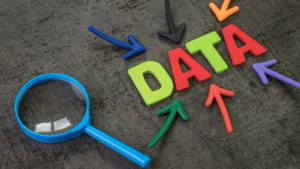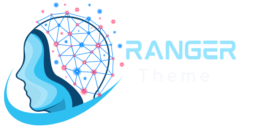When diving into the world of database programming, one of the key decisions developers face is choosing the right programming language to interact with their databases efficiently. From SQL to Python, each language offers unique features and capabilities that can impact the performance and functionality of your database applications. As a seasoned blogger in the tech industry, I’ve explored the nuances of various database programming languages and their practical applications. Whether you’re a novice developer looking to enhance your skills or a seasoned pro seeking to optimize database performance, understanding the intricacies of programming languages is crucial.
Database Programming Languages
Key Features of Database Languages
 When delving into database programming languages, it’s crucial to understand their key features to leverage them effectively. SQL, structured query language, remains one of the most popular choices for database management. It excels in data manipulation and retrieval, offering powerful query capabilities for interacting with databases. Python, known for its simplicity and readability, has gained traction in database programming due to its versatility in handling various data types and its extensive library support for database connectivity.
When delving into database programming languages, it’s crucial to understand their key features to leverage them effectively. SQL, structured query language, remains one of the most popular choices for database management. It excels in data manipulation and retrieval, offering powerful query capabilities for interacting with databases. Python, known for its simplicity and readability, has gained traction in database programming due to its versatility in handling various data types and its extensive library support for database connectivity.
The landscape of database programming languages has evolved significantly over time, adapting to changing technological demands. Initially, languages like SQL dominated the field with their specialized query functions. However, modern languages like Python have emerged, providing a more comprehensive approach to database programming with features that cater to a wider range of applications.
Popular Database Programming Languages
SQL: The Standard in Database Management
 SQL, or Structured Query Language, is the cornerstone of database programming languages. It’s renowned for its robust capabilities in managing and manipulating data within relational database management systems. SQL excels in handling structured data, providing a standardized way to interact with databases, ensuring data integrity, and enabling efficient data retrieval through powerful query functions.
SQL, or Structured Query Language, is the cornerstone of database programming languages. It’s renowned for its robust capabilities in managing and manipulating data within relational database management systems. SQL excels in handling structured data, providing a standardized way to interact with databases, ensuring data integrity, and enabling efficient data retrieval through powerful query functions.
In recent years, NoSQL databases have gained popularity, offering a flexible alternative to traditional SQL databases. NoSQL, which stands for “Not Only SQL,” represents a diverse set of database technologies designed to address specific requirements of modern applications, such as scalability, flexibility, and performance.
Choosing the Right Database Programming Language
Factors to Consider
 When selecting a database programming language, it’s crucial to consider various factors that can impact your project’s success. One key factor is the type of data you’ll be working with. For structured data requiring complex queries, SQL is often the preferred choice due to its query optimization and relational database management system capabilities. On the other hand, if you’re dealing with unstructured or semi-structured data, NoSQL databases like MongoDB or Cassandra might be more suitable, offering flexibility in schema design.
When selecting a database programming language, it’s crucial to consider various factors that can impact your project’s success. One key factor is the type of data you’ll be working with. For structured data requiring complex queries, SQL is often the preferred choice due to its query optimization and relational database management system capabilities. On the other hand, if you’re dealing with unstructured or semi-structured data, NoSQL databases like MongoDB or Cassandra might be more suitable, offering flexibility in schema design.
Another important factor to consider is the scalability of the language. If you anticipate significant growth in your database size or user base, choosing a language that can scale effortlessly, such as SQL with its ability to handle large datasets efficiently, is essential. Additionally, consider the community support and availability of resources for the language you choose. Opting for a widely-used language like SQL ensures a vast pool of resources, tutorials, and forums to aid in your development process.
Industry Recommendations
In the fast-paced world of technology, staying abreast of industry recommendations is vital when choosing a database programming language. SQL continues to be a dominant force in the database realm, widely supported by industry giants and established tech companies. Its proven track record in handling mission-critical data operations solidifies its position as a top choice for many organizations.
However, NoSQL databases have gained popularity in recent years, especially in industries like e-commerce, social media, and big data analytics. Companies looking to manage large volumes of unstructured data or needing rapid scalability often turn to NoSQL solutions for their projects. With the rise of cloud computing and distributed systems, NoSQL databases offer a distributed architecture that aligns well with modern application requirements.

